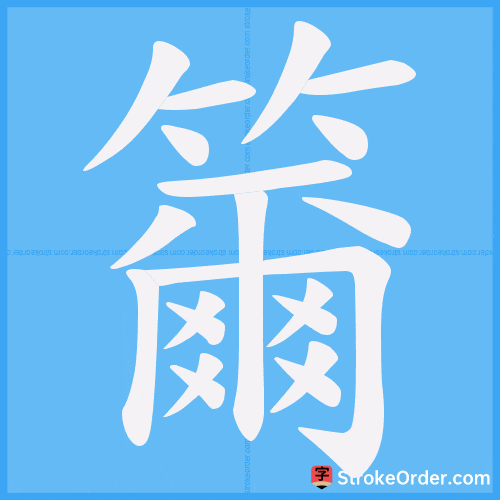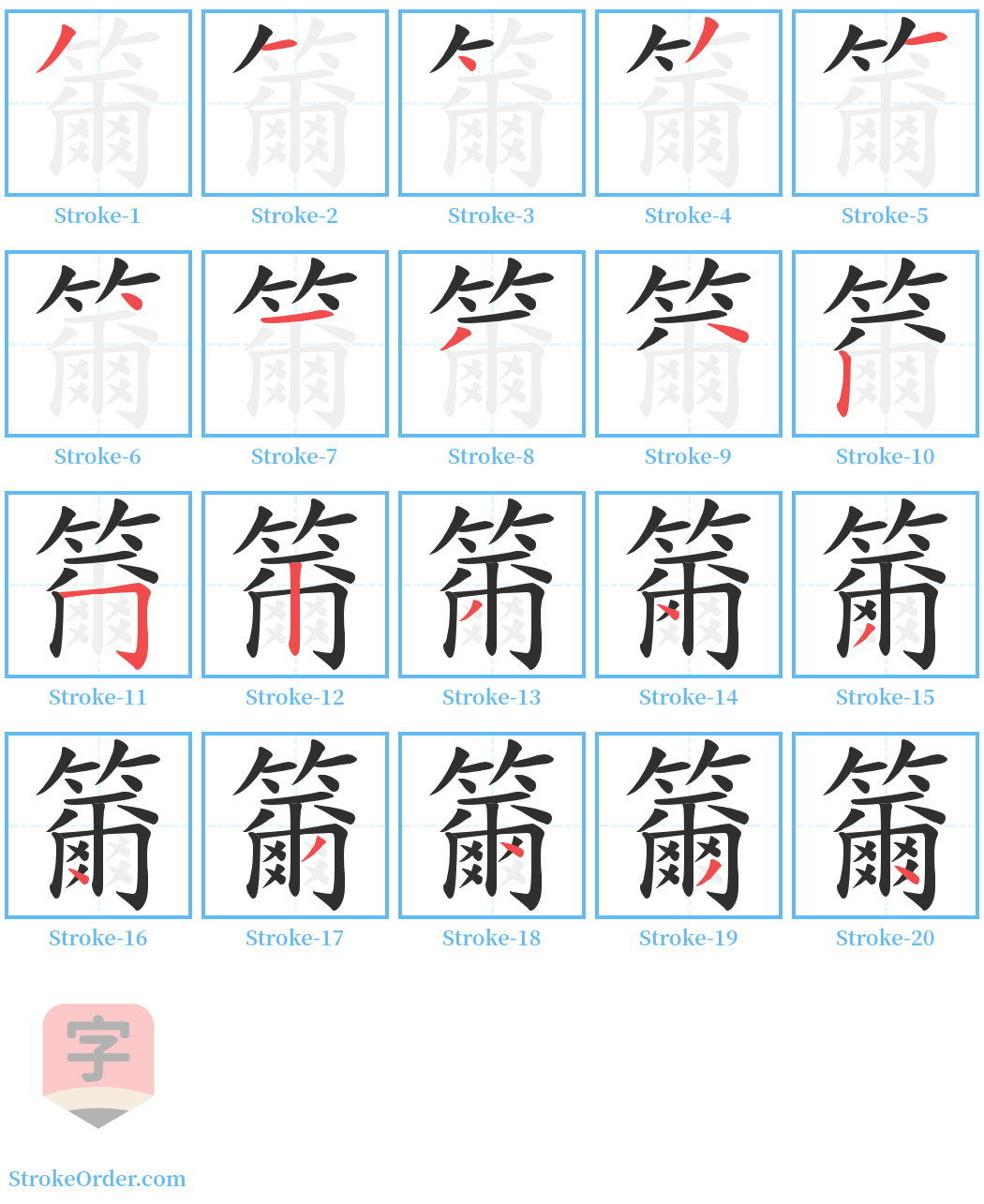籋 Stroke Order
Animated Stroke Order of 籋

Stroke Order Diagrams for 籋

Information of 籋
Pinyin
niè
Radical
竹
Strokes
20 strokes
Usage
★★
Definition
籋 (niè)
1. Noun: 镊子 (English: forceps)
2. Noun: 用镊子钳取 (“霜髯籋更疏.” - English: pick up something with forceps)
3. Verb: 通“蹑”,踏 (English: follow)
Additional Notes:
1. "籋" means "forceps." According to "Shuowen Jiezi": 籋, 箝也. The commentary states: "An instrument for clamping is called 籋; people now make it from copper or iron, referring to it as 镊子."
2. "籋" is also described as "small clamps" in "Guangyun."
Usage of 籋 (niè) as a verb:
1. To pick up something with forceps (English: pick up sth. with forceps). For example, in Su Shi’s poem "He Sun Shu Jing Brothers Li Duan Shu Chang He": "Sick bones are so thin they are about to break, frost-beard is even sparser."
2. It also means "to follow" (通“蹑”). For instance, in "Han Shu·Li Yue Zhi·Tian Ma Ge": "籋 floating clouds, the horse galloping quickly." And in Jin·Yuan Haowen's "Sending Zhang Sheng with North Journey": "籋 clouds can easily lose sight of a thousand miles; hidden fog makes it hard to see a speck."